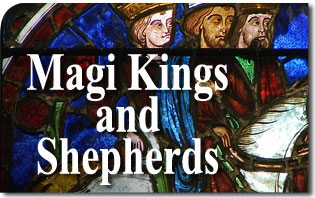 Medieval men had a marvelous devotion to the Magi Kings. While this devotion is based on the Gospels, they developed it with such strength that it lives on even today.
Medieval men had a marvelous devotion to the Magi Kings. While this devotion is based on the Gospels, they developed it with such strength that it lives on even today.
In addition to a few shepherds, Providence willed that the Child Jesus receive the visit of three wise men who, according to a venerable tradition, were also kings.
The qualities of these visitors represent two extremes in the human scale of values. On the one hand, there are the kings, who are by right found at the apex of social prestige, political authority, and economic power, while the fact that they were also wise man gives them the quality of representing the highest expression of intellectual capacity.
On the other hand, the shepherd is on the ground floor from the standpoint of prestige, power and science.
But divine grace, which called the Magi Kings to the manger from the depths of their distant countries, also called shepherds from the bottom of their ignorance about such things.
Grace does nothing wrong or incomplete. If it called and showed them how to get there, it must also have taught them how to present themselves before the Son of God.
And how did they present themselves? Quite characteristically, as they were.
The shepherds arrived taking their cattle and without first going through Bethlehem to dress themselves up so as to disguise their humble condition.
The Magi Kings presented themselves with their treasures – gold, frankincense and myrrh – without trying to hide their grandeur, which contrasted with the supremely humble environment in which the Divine Child found Himself.
For many centuries, with abundant iconography, Christian piety expressed its belief that the Magi Kings went to the grotto adorned with all their insignia.
This means that at the foot of the crib each person must present himself as he is, without any disguise or mitigations.
For there is room for everyone, great and small, strong and weak, wise and ignorant.
It is only a matter for each person to know himself and then find his place next to Jesus.
